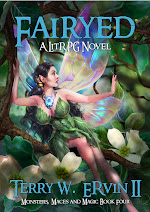
In 2007, I replaced the Ranger with a new Chevy Colorado. This past spring, within two months, the truck was struck twice. Once when a fellow was looking into the setting sun and swiped the side of the truck, doing far more damage to his compact vehicle than to the pickup truck. A second incident occurred when a school bus that had been in a substantial collision was being towed down the street struck the Colorado. With the first collision, a local police officer witnessed the accident. A following driver witnessed the bus strike the Colorado’s side mirror, shattering it, and informed me. Thus, nothing for repairs came out of my pocket.

To add to the Colorado’s string of hits, my wife took my vehicle to work and one of her coworkers did it a smidgen of damage while parking next to it.
Now, just like my Ranger, the Colorado has proven to be reliable, but it seems to lack luck—or maybe attract bad luck? Heck, you’d think red would make the vehicle easier to spot than green and help it avoid being struck.
Some writers, I think, begin to feel that a story or novel they’ve written and submitted is a bit unlucky, much like one might say my Colorado is.
I had a short story that had twice been accepted for publication. Both of the magazines that accepted it for publication had long track records—years of continuous publication. Yet, they closed their doors prior to the story coming to print. Another market closed while the story was sitting in the slush pile, and with yet another market the story languished after acceptance for well over a year before I pulled it. The story finally did find a market (Fear and Trembling) that not only accepted it but published it.
The story in question, “The Scene of My Second Murder,” was the first short story I wrote for publication. If I’d have considered it ‘unlucky’ and stopped submitting it, the story never would have been published. If I’d have linked my short story writing to the line of dead end results “The Scene of My Second Murder” encountered, I’d have ceased my short story writing efforts and missed out on those successes to date.
So I’m sticking with my Colorado, just like I stuck with “The Scene of My Second Murder.”
The situation reminds me of a quote from the late 70s novelization of Star Wars where Yoda explained to Luke and Han Solo: “In my experience there is no such thing as luck. Only highly favorable adjustments of multiple factors to incline events in one’s favor.”
Even considering Yoda’s observation, I’d say there is a bit of luck involved in an author successfully finding a publisher for his story(s) and novel(s). But I also believe that it takes effort in writing a quality work, and being professional and persistent in submitting it to appropriate markets for as long as it takes.
So, no, my Colorado isn’t an unlucky vehicle. It just ran into a short string of unfavorable adjustments of multiple factors that inclined events against its favor.





















